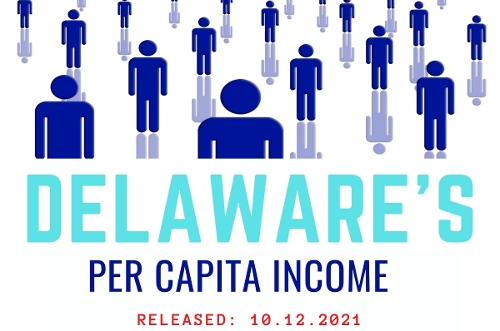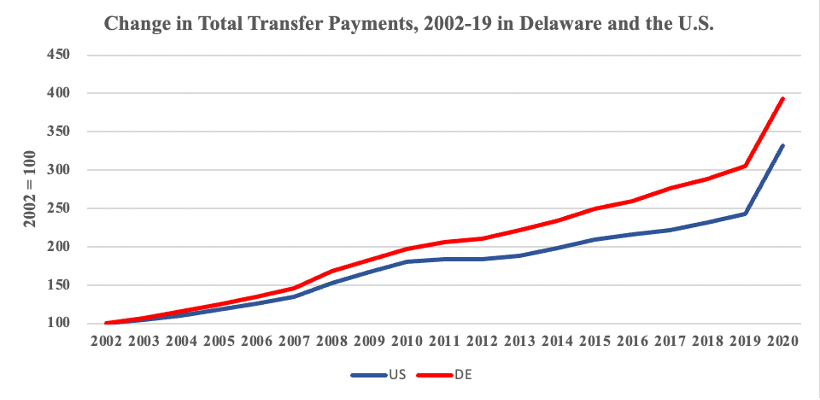(GRAPH SOURCE: U.S. Bureau of Economic Analysis)
As indicated in the graph above, the early 2000s were an economic catastrophe in Delaware with the closure of automotive manufacturing plants, the downsizing of the Dupont Company, and stagnation of the credit card industry.
However, these events from well over a decade ago do not explain the ongoing post-Great Recession erosion of Delaware's economy. Perhaps that can be explained by the continued shift in our economy from one driven by entrepreneurial activity to one driven by government expenditures.
Economists track personal income as three major components: earnings (wages and proprietor's income), investments (dividends, interest, rent), and transfer payments (Social Security, Medicare, Medicaid, TANF-Temporary Assistance for Needy Families - aka Government Support).
Earnings are the largest component of personal income, accounting for 60% nationwide. From 2002-2020 total earnings in the U.S. increased 88% but rose only 47% in Delaware - and actually decreased by around $64M in Delaware during the pandemic.
This loss of high-wage earners in Delaware has been accompanied by a slowdown in income from investments. The loss of high-wage earners also caused an increase in the negative effects of Covid-19 in Delaware versus the rest of the nation. From 2002-20 nationwide income from investments rose by 129% (versus last year's reported 133% - a 4% yr/yr decline), but Delaware took a larger hit - 2002-2020 income from investments rose just under 89% in Delaware (versus last year's reported 94% - a yr/yr 5% decline).
As shown in the chart below, in Delaware, the growth in the third component of personal income - transfer payments (aka Government Support) - continues to outpace the nation. Total transfer payments increased 332% in the U.S. from 2002-2020 while rising almost 400% in Delaware.
The state rose faster than the nation in all categories of transfer payments, most notably in Social Security and Medicare (beach retirees) and Medicaid (liberal eligibility requirements).


